Our year-end coverage continues with a look at the best performances of the year. Rather than divide categories into supporting or lead or by gender, we’ve written about our thirty favorite performances from 2020, period. (A few more, if you add some groupings we couldn’t leave out.) Check out our countdown below and start watching the ones you’ve missed here.
30. Frances McDormand (Nomadland)
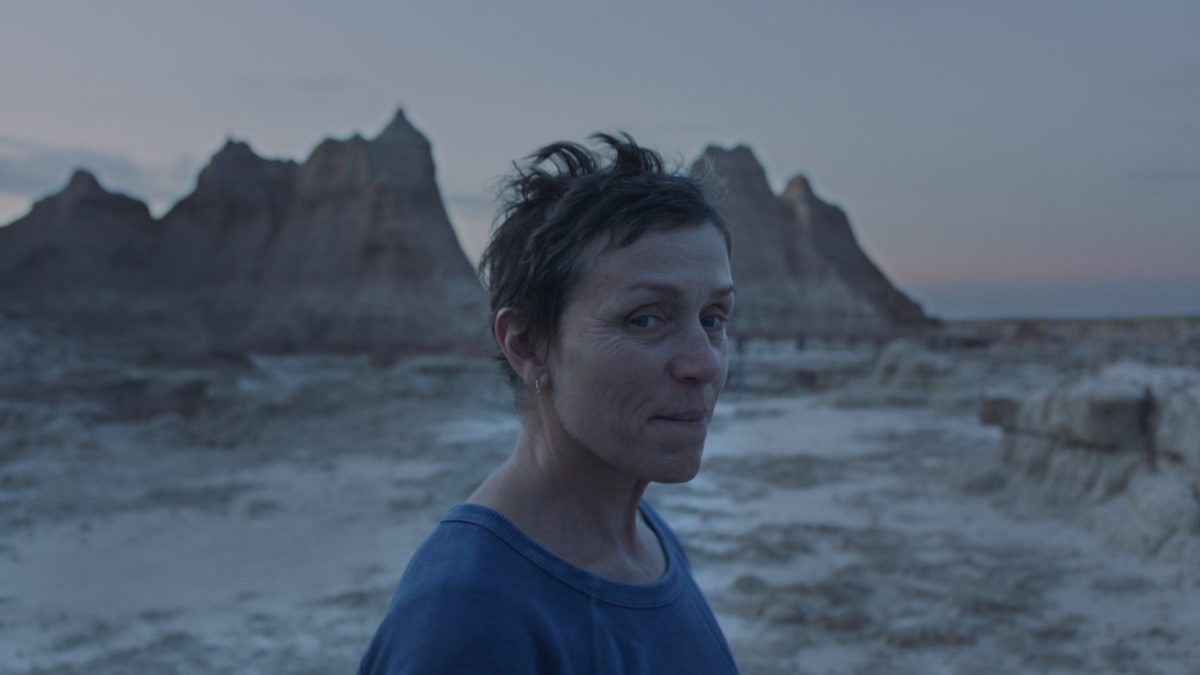
Frances McDormand’s work in Nomadland is all about isolation, While she shines in the communal sequences throughout the country, particularly alongside David Strathairn, her best acting here comes from solitude. Whether she’s silently eating in her RV, working tedious shifts at Amazon warehouses, swimming underneath waterfalls or wandering around her former house with aching melancholy, McDormand flawlessly captures the freedom and heartbreak of impermanence with just a few trembles and glances. – Logan K.
29. Cosmo Jarvis (Shadow of Violence)
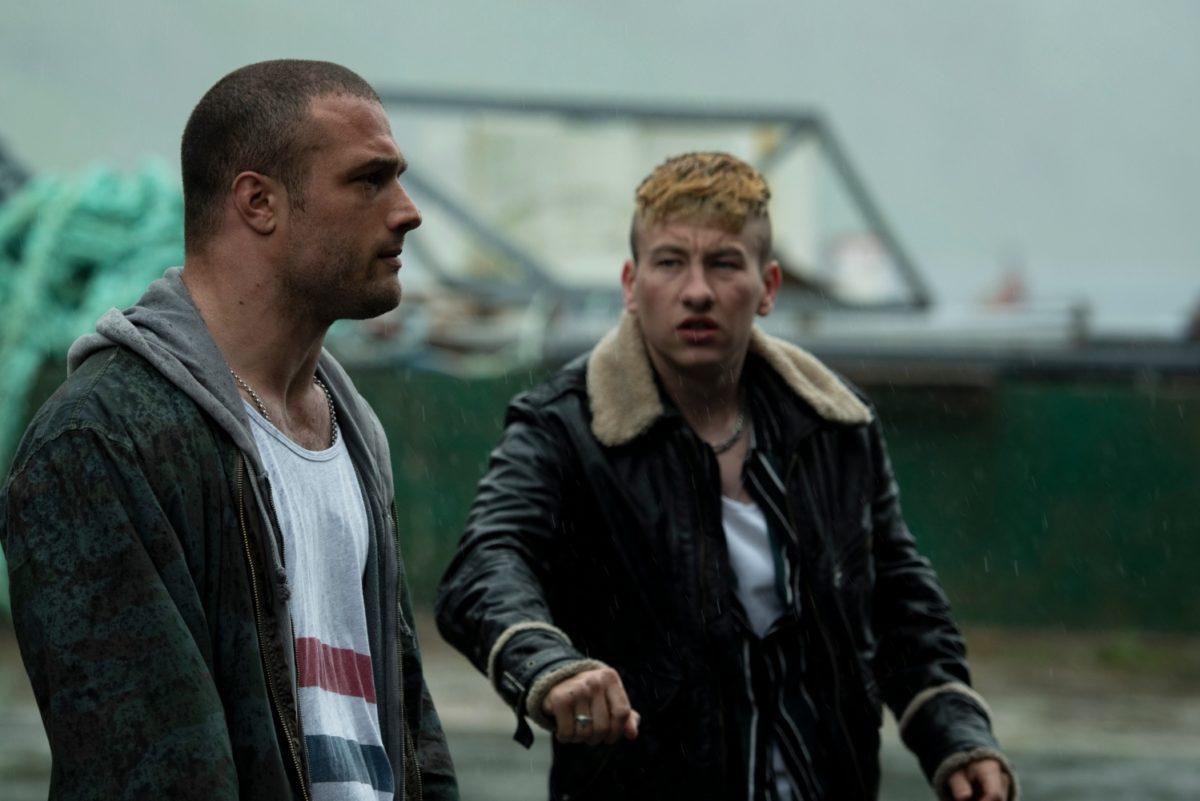
The brutality of Western Ireland’s low-level criminals set against the wide-open green landscape that bridges its country’s cities together is the perfect juxtaposition to see Cosmo Jarvis’ revelatory performance in Shadow of Violence as a brutish, violent, broken amateur boxer, caught in a world he can’t control. The warmth, confusion, and sensitivity Jarvis colors his character with while trying to understand a way out of the life that wants to suffocate him makes for an electrifying and complex portrait of a lowly gangster. – Erik N.
28. Elisabeth Moss (The Invisible Man and Shirley)
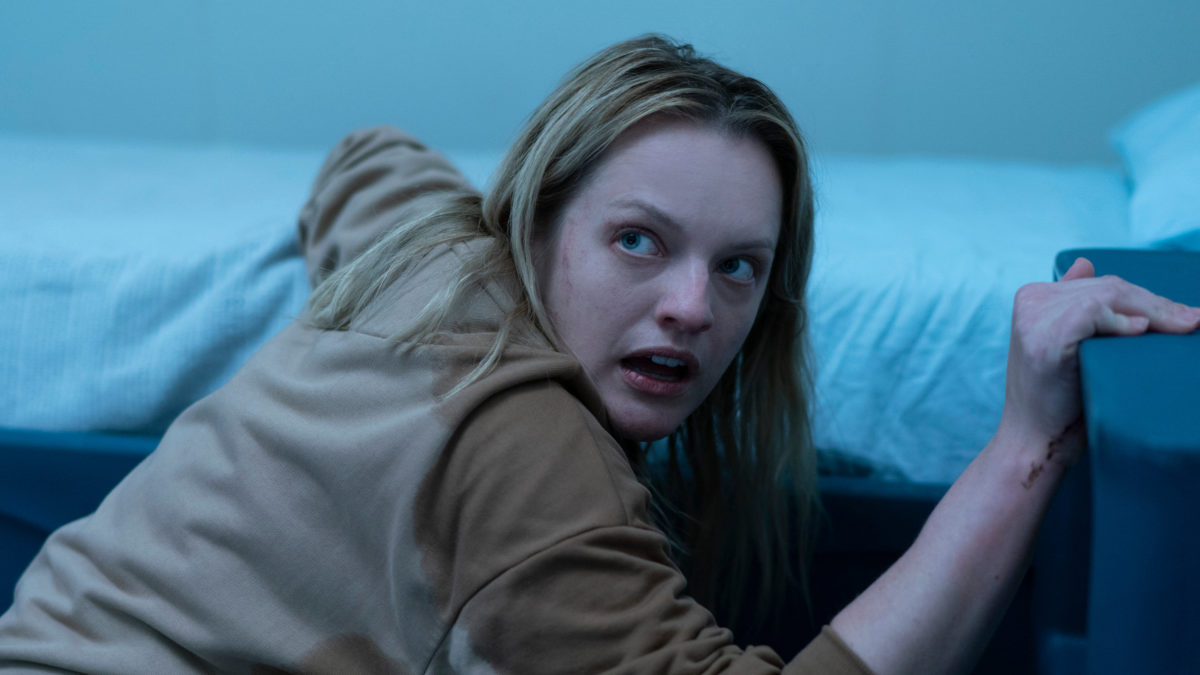
Like so many of us in real life, Elisabeth Moss’s cinematic 2020 was a year of extreme torment. In Leigh Whannell’s serpent-like reimagining of The Invisible Man she fought for her body and mind against a gaslighting, violent ex-boyfriend who used his money, privilege, and scientific brilliance to carry out an elaborate plan of revenge. Playing infamous writer Shirley Jackson as a haunted, even otherworldly visionary (and harasser) in Josephine Decker’s Shirley, Moss harnesses a more aggressive approach to exploring what resilience looks like onscreen. When juxtaposed, both performances use fear as fuel to strike back against patriarchal mechanisms of manipulation constructed to keep women silent and weak. – Glenn H.
27. Kate Winslet (Ammonite)
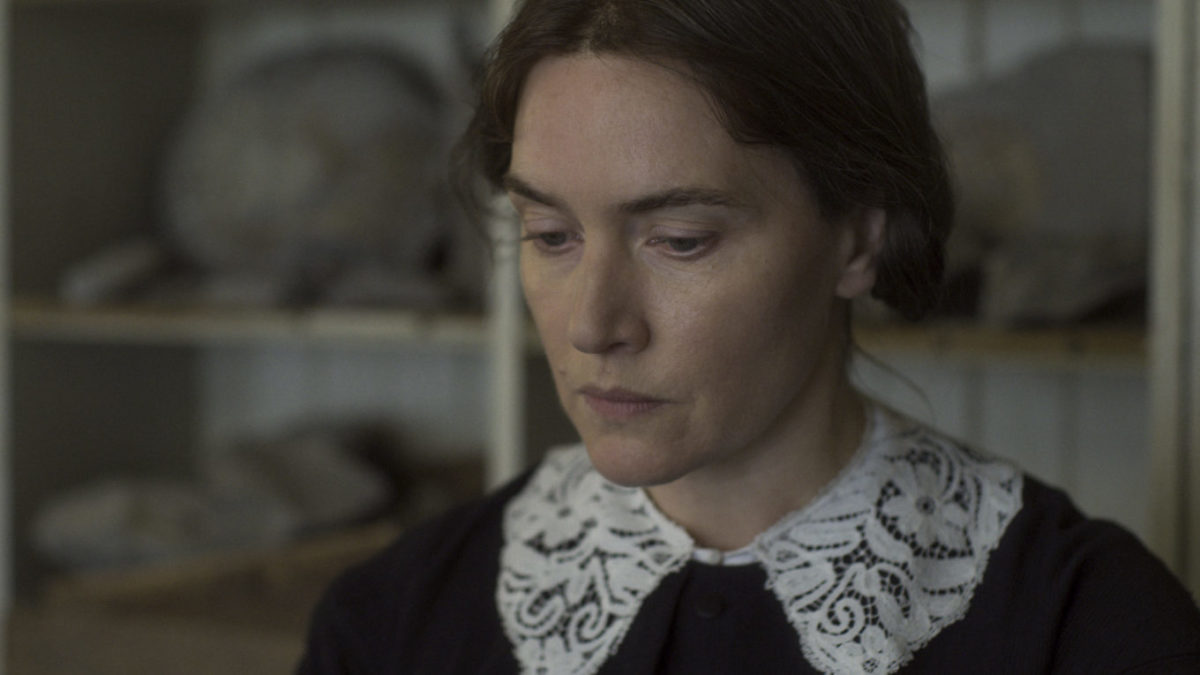
Calling a Kate Winslet performance career-best is no easy statement, but her turn as 19th-century English paleontologist Mary Anning in Ammonite is certainly in consideration. The legendary actress expresses so much without dialogue in Francis Lee’s romantic drama. It’s glorious to see her communicate love, loss, longing, and loneliness purely through looks and physicality. Few actors have the skill to do what she does here. It’s why Winslet is one of the greats. – Orla S.
26. Tallie Medel (Fourteen)
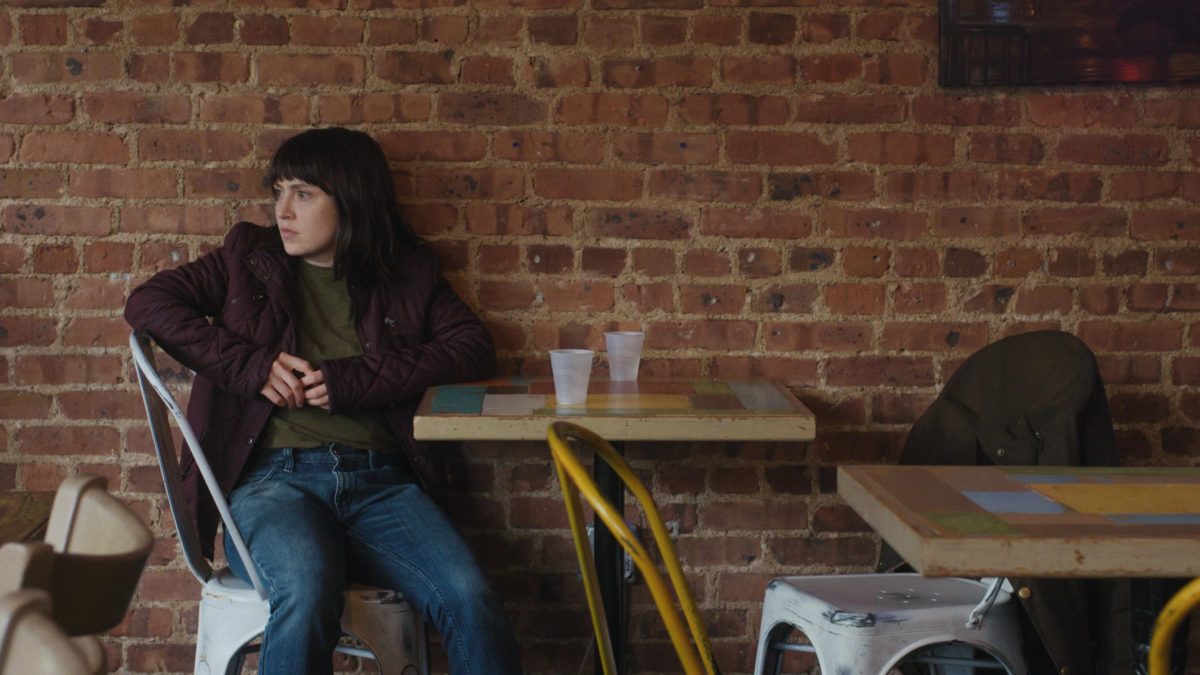
As the quiet center of Fourteen, Tallie Medel builds on her previous, already considerable collaboration with Dan Sallitt to produce a performance suffused with the weight of responsibility. Through both her character’s attempts to support her unstable friend, played by a similarly magnificent Norma Kuhling, and her romantic life and young motherhood, Medel undergoes a profound transformation while never losing an essential sense of ambivalence born from care, serving as a brilliant and expressive anchor. – Ryan S.
25. Ethan Hawke (Tesla)

Ethan Hawke’s inhabitation of Nikola Tesla is burdened with stares of jealousy and intense discomfort whenever not focused on his designs. Whether observing from behind a fence at a lavishness he’ll never experience himself or singing a heartbreaking cover of “Everybody Wants to Rule the World,” Hawke captures the innate fear of being forgotten during your own lifetime through his quivering lips and teary eyes. It’s some of his most anxious and affecting work. – Logan K.
24. Nicole Beharie (Miss Juneteenth)
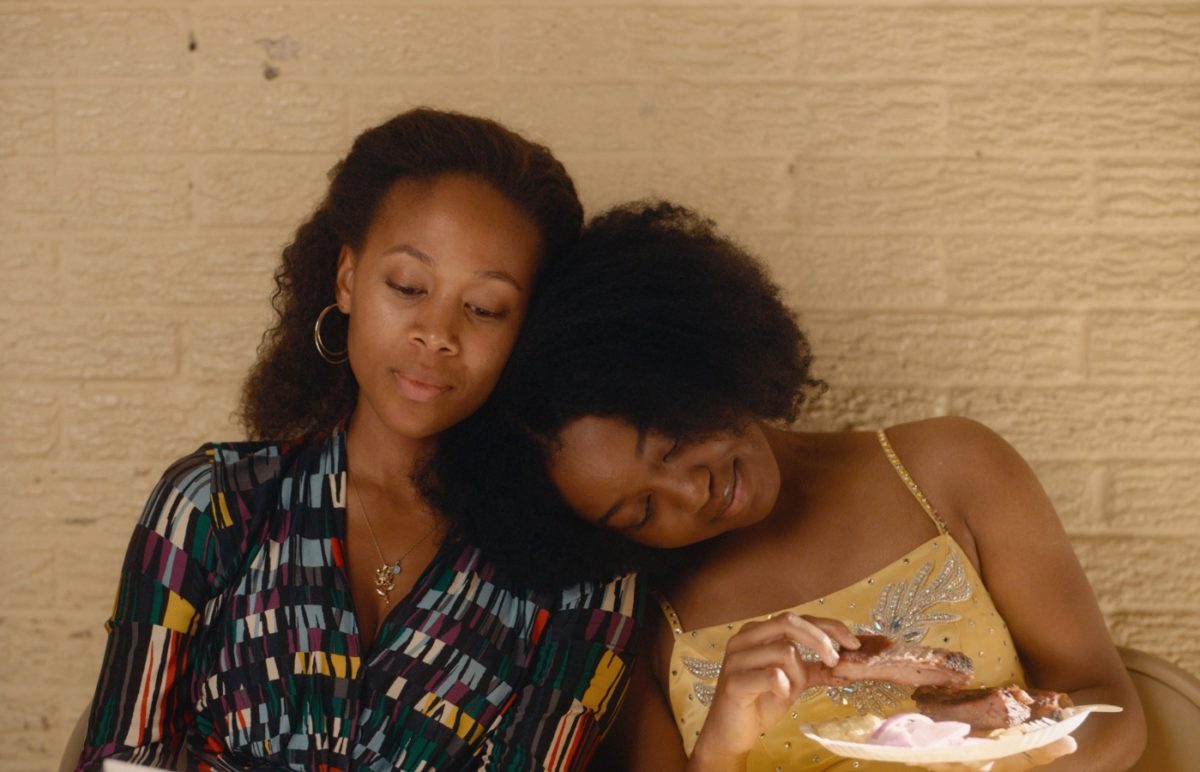
The first scene in Channing Godfrey People’s Miss Juneteenth sees Turquoise Jones (Beharie) carefully remove a beauty pageant crown from a fading hatbox. Years ago, as the recently crowned Miss Juneteenth, she waved to her subjects and flashed them a smile filled with possibility. The present has her living a less-than-desirable life, she can barely make ends meet and wants her daughter Kai (Alexis Chikaeze) to have everything she didn’t, so she becomes convinced she also needs to win the crown. Beharie could’ve played Turq like a Tennessee Williams heroine or gone for an exaggerated physical performance; instead she plays her so matter-of-fact that even using descriptions like “girl next door” or “naturalistic” feels like imposing judgment. Beharie is absolutely luminous playing someone who, thinking of her daughter’s future, heartbreakingly fails to acknowledge her present. But if the actor doesn’t judge Turq, how the hell dare we? – Jose S.
23. Maria Bakalova (Borat Subsequent Moviefilm)
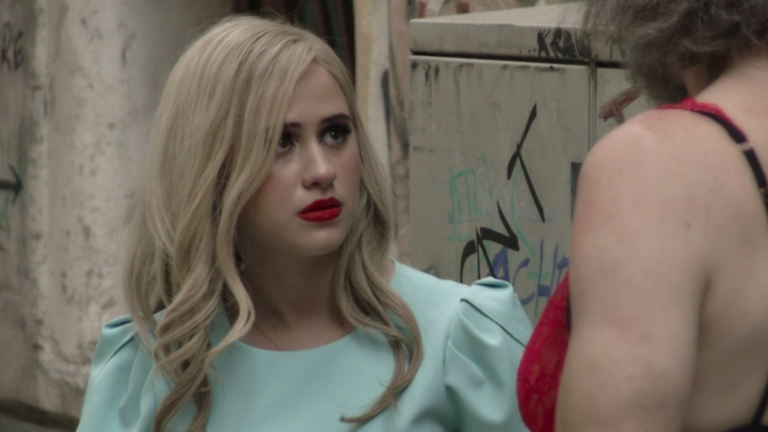
Sacha Baron Cohen’s cringe-worthy stunt comedy relies on getting his subjects comfortable enough to spill the beans and in one of the most infamous scenes of the year he’s found a worthy collaborator in Bulgarian actress Maria Bakalova, whose previous credits include a few shorts, TV episodes, and films that haven’t enjoyed wide releases in United States. No doubt this isn’t the last we’ll hear from her in a star-making turn as Tutar, the 15-year old daughter of Borat, herself an aspiring TV journalist who finds herself embedded with a right-wing news channel, landing an infamous interview with Rudy Giuliani (who arguably is having the worst year ever). Bakalova is absolutely hilarious and fearless in the most awkward of situations. – John F.
22. Kate Lyn Sheil (She Dies Tomorrow)
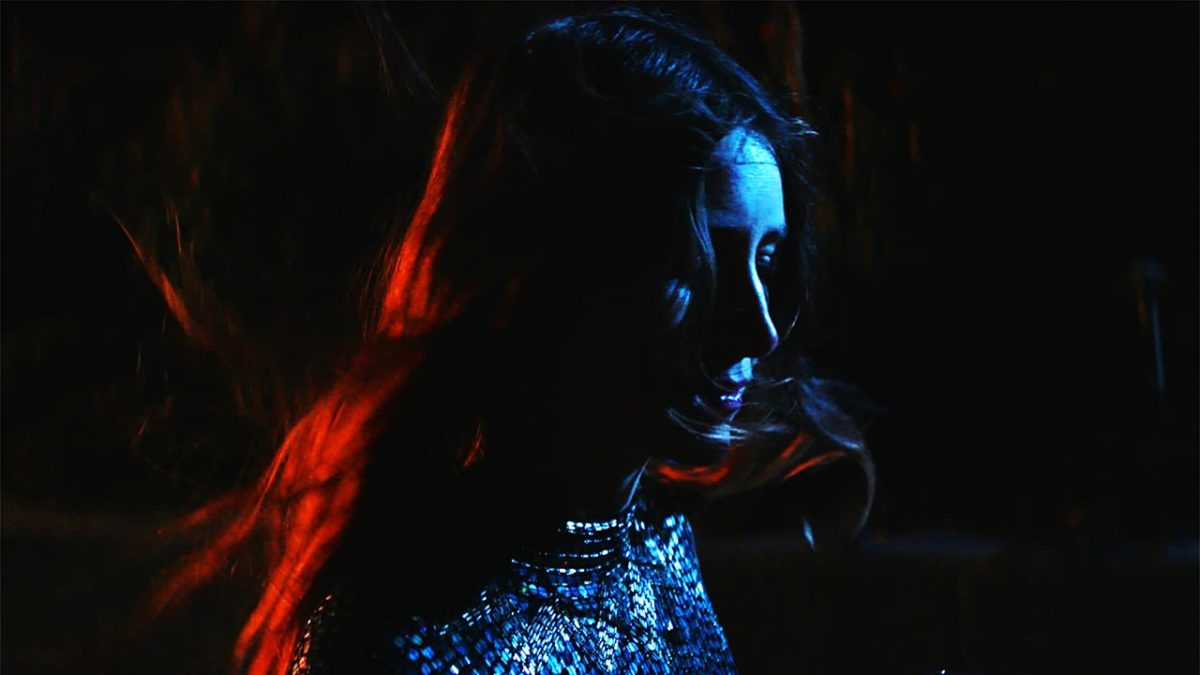
Amy knows she’s going to die tomorrow but she does not know how many people she will infect along the way. A recovering alcoholic reeling for a breakup, the always terrific Kate Lyn Sheil carries Amy Seimetz’s unsettling, rich thriller with a a complexity rarely seen onscreen. A film with a playful yet menacing quality is rare: observe Amy’s infectious downfall as she aims to escape the 9-5 rat race while finding her isolation to be both infectious and deadly as she starts to live on the edge. Sheil never misses a beat, finding darker truths and vulnerabilities within Amy at rock bottom. – John F.
21. John Magaro (First Cow)
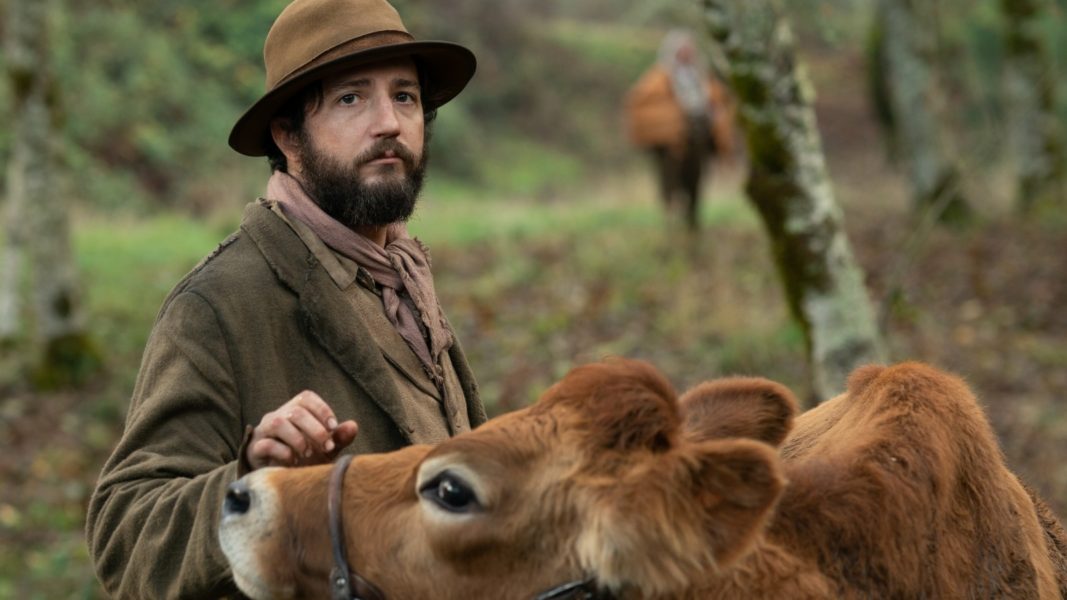
There is such wonderful vulnerability in John Magaro’s performance in First Cow. He is almost always quiet, a character who never raises his voice or looks for any conflict. There is such intimate kindness radiating from him, especially in his connections with his best friend Lu and the cow he milks at night. His wholesome fragility makes later pain and desperation in his eyes even more devastating, as he fights through immeasurable forces to see his friend again. – Logan K.
20. Aubrey Plaza (Black Bear)
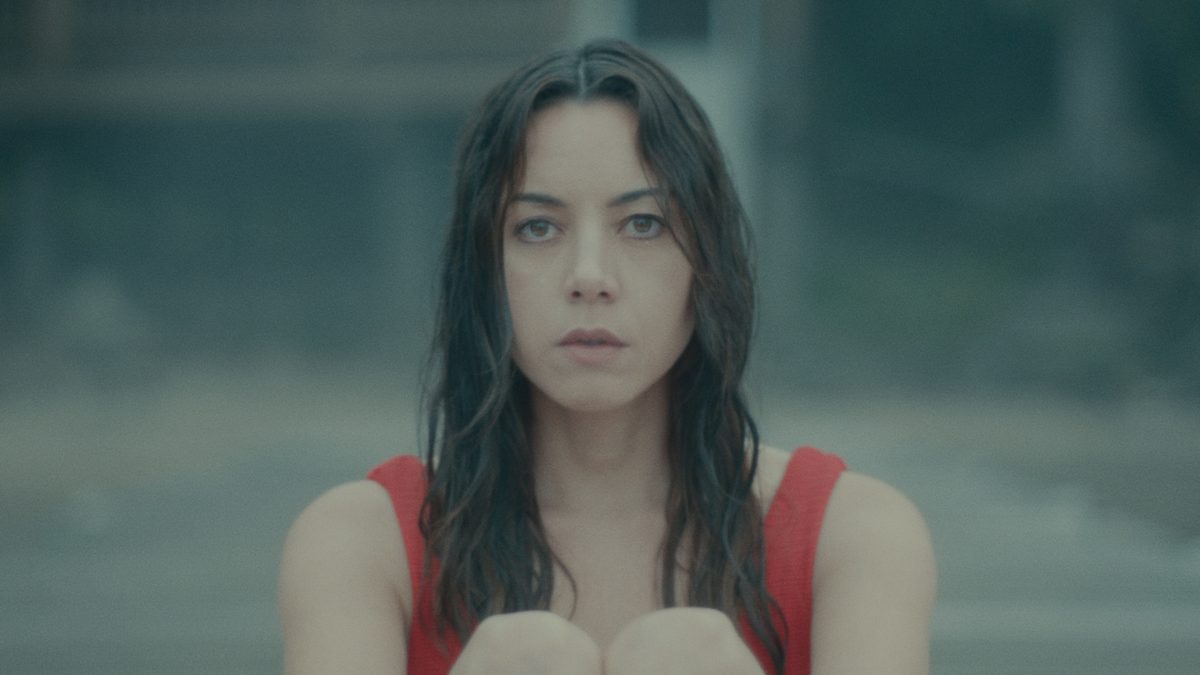
Many don’t think of Aubrey Plaza as a dramatic actor. Black Bear might change that. Her performance, driven by her difficult-to-read face and persona, shifts throughout the meta drama, as the second half of the film rests on her unhinged shoulders. As Anya Taylor-Joy might showcase emotions through her eyes, Plaza uses her smile, the differing curl of her mouth in different forms to portray a full set of emotional capacity. Not all of Black Bear works, but Plaza deserves her laurels. – Michael F.
19. Jessie Buckley (I’m Thinking of Ending Things)
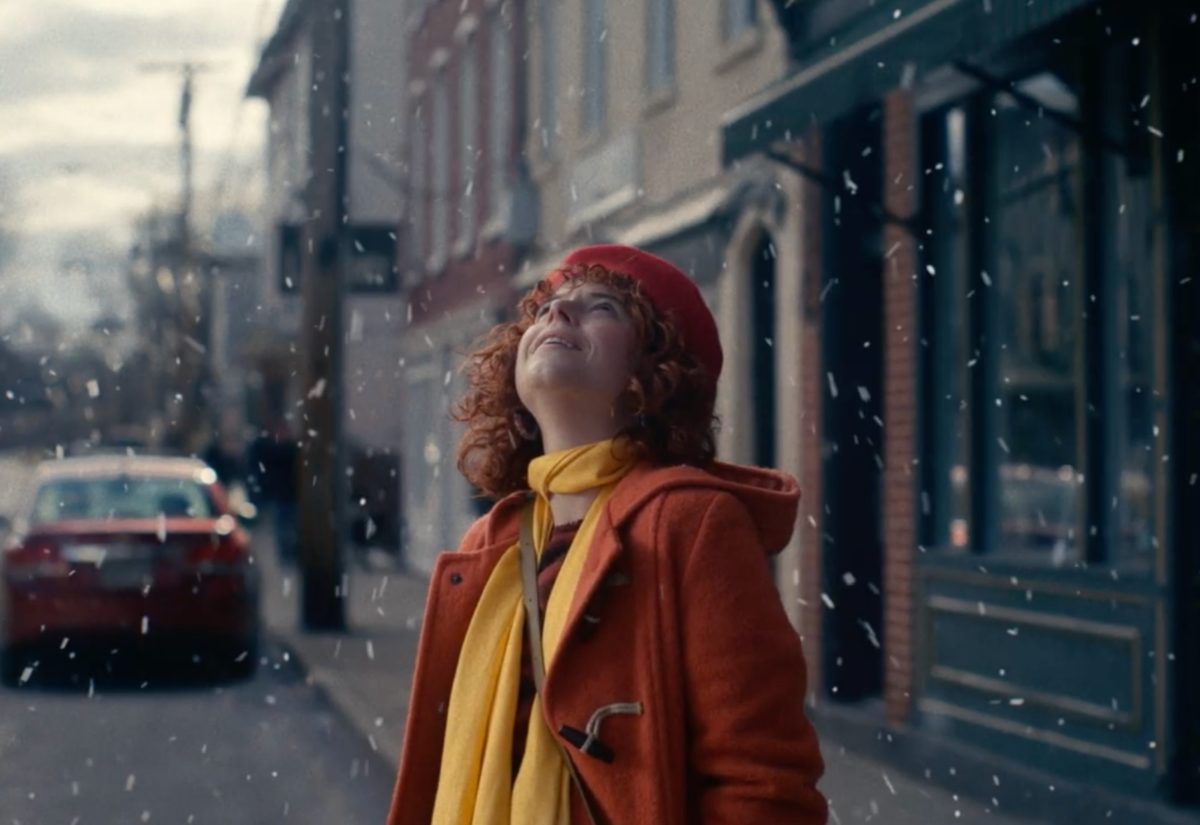
Jessie Buckley walks a fine line in Charlie Kaufman’s latest exercise in meta misery. Credited as “Young Woman,” she has to create a well-defined personality from a non-character in a role that reveals itself to be less a person and more a pile of cultural references. Yet despite all the literal and figurative shapeshifting—and a film designed to collapse upon its own deteriorating structure—Buckley holds strong as the emotional center. She goes along with Kaufman’s curveballs while keeping her character’s emotions grounded from frame one. Even after knowing she’s pure fiction, we root for her as if she’s real. – C.J. P.
18. Mads Mikkelsen (Another Round)
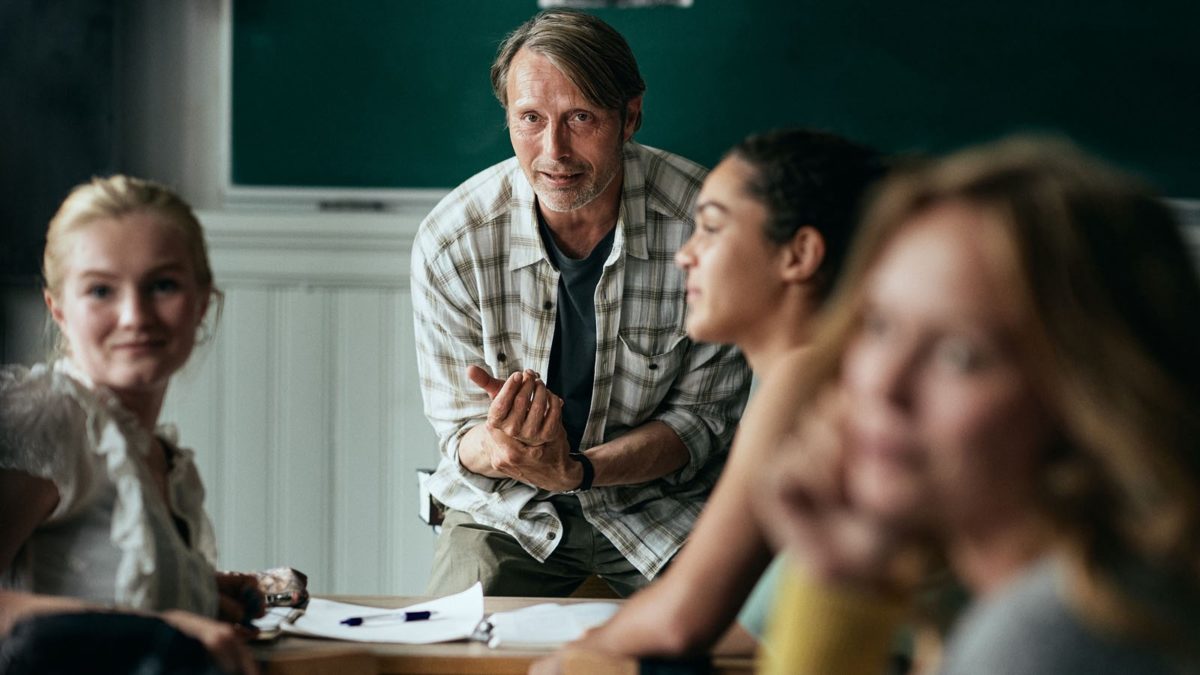
Few inhabit the guttural melancholy of alcohol quite like Mads Mikkelsen. By the end of Thomas Vinterberg’s devastating Another Round he is reckoning with everything he has lost—everything that booze has taken from him—as he contemplates another relapse. Instead of throwing it away and trying to start over, he takes a swig and lets the brief moment of perfection consume his entire body, giving himself up to dance and drink for as long as the bliss lasts. – Logan K.
17. Brian Dennehy (Driveways)

If you grew up watching action movies in the 1980s and ’90s, odds are Brian Dennehy scared the shit out of you at some point. Which makes his final performance in Andrew Ahn’s compassionate drama Driveways all the more revelatory. Playing an aged Korean War veteran who befriends a young Asian American boy and his grieving mother, Dennehy rarely raises his voice, speaking softly and wisely with the candor of a man who’s learned from life’s pitfalls. And in the beautiful final scene, his hopeful, loving six-minute monologue not only ends on a high note, but helps conclude a brilliantly diverse career defined by weathered grace. – Glenn H.
16. Carey Mulligan (Promising Young Woman)
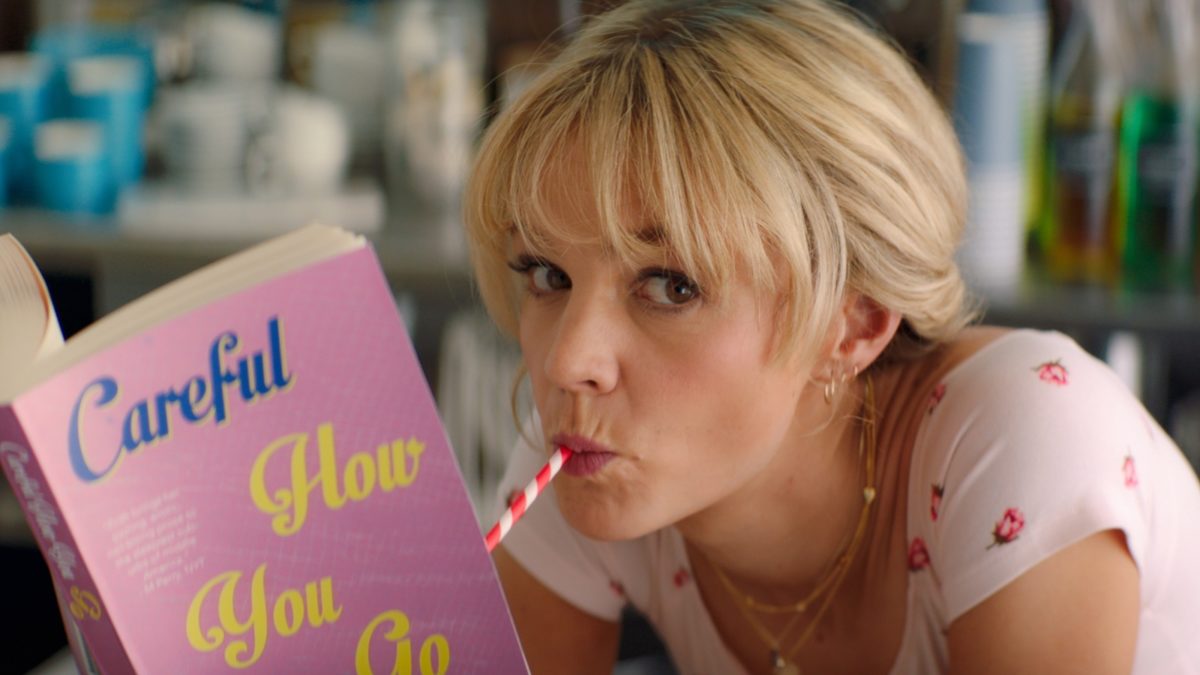
It makes sense that Promising Young Woman was produced by Margot Robbie’s company, LuckyChap Entertainment, because Cassie (Mulligan) feels like a spiritual sibling to Robbie’s own Harley Quinn. Both characters were led to become vigilantes-of-sorts who can be perceived as heroes or villains depending on who you ask. Filmmakers rarely seem to know what to ask of Mulligan, who can become anything effortlessly—so director Emerald Fennell asks her for everything, leading to a performance equally moving and terrifying. Mulligan travels across moods, tones, genres even, to create a woman whose pain may be too unbearable to fit in one box. It might just be the performance of her already remarkable career. A promise fulfilled several times over. – Jose S.
15. The Cast of Bloody Nose, Empty Pockets
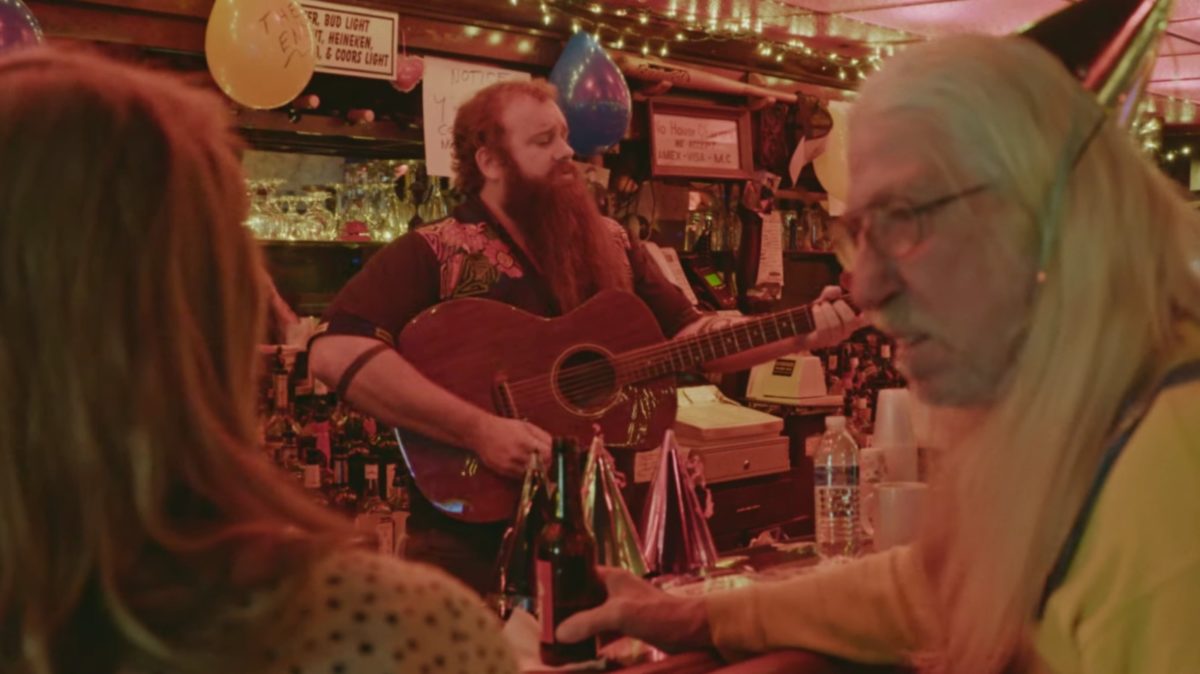
While Bloody Nose, Empty Pockets approaches elements of truth through its free-flowing construction, there is inherent artifice to be found in every aspect of the production, including in the performances. However, it’s a testament to the impeccable casting and committed work of every bartender, homebody drunkard, and random rambling stranger that there is something unflinchingly genuine about these inhabitants. Every one of them is unique, compelling, and a perfect conduit for further melancholy. In particular, Michael Martin stands out for his deeply defeated portrait of alcoholism, capturing a man with nowhere else to cling onto flawlessly. – Logan K.
14. Eva Green (Proxima)
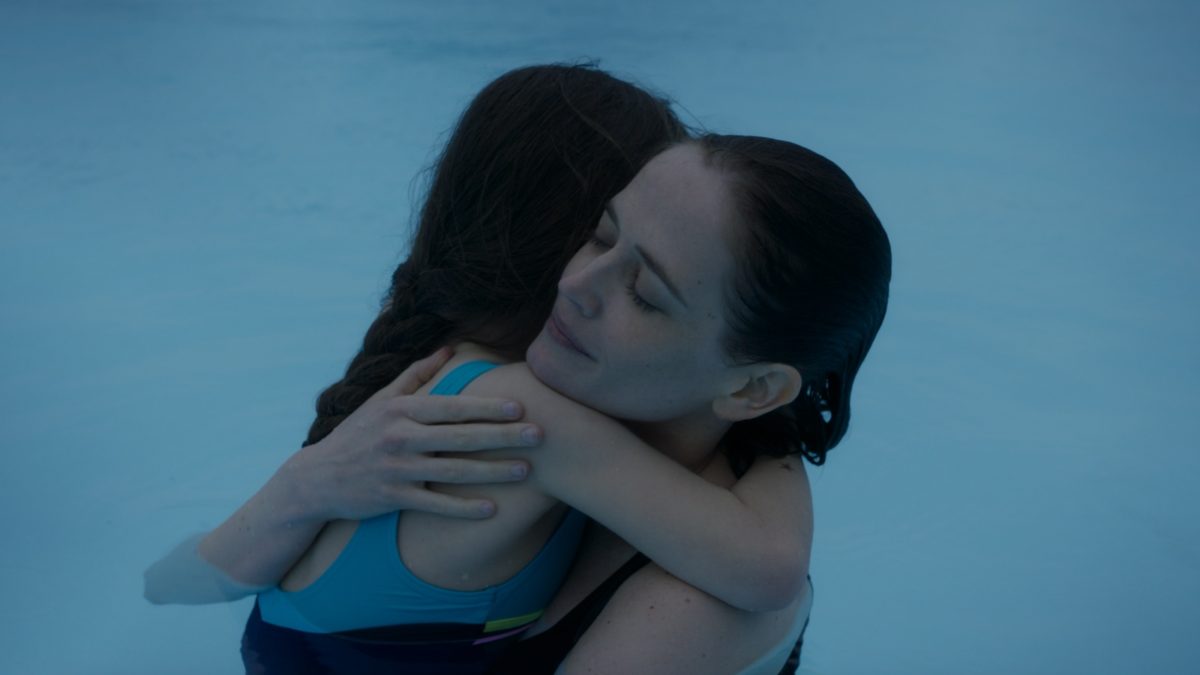
Eva Green’s performance in Proxima is one of constant multitasking. As a working mother, Sarah (Green) is always thinking about two things at once: her daughter and her astronaut training. She dons a steely exterior in front of her male colleagues, who she feels she must prove herself to. But Green communicates the pressure Sarah’s hiding through small details, like a fidget of her hands or a flicker of worry on her face. – Orla S.
13. Chadwick Boseman (Ma Rainey’s Black Bottom and Da 5 Bloods)
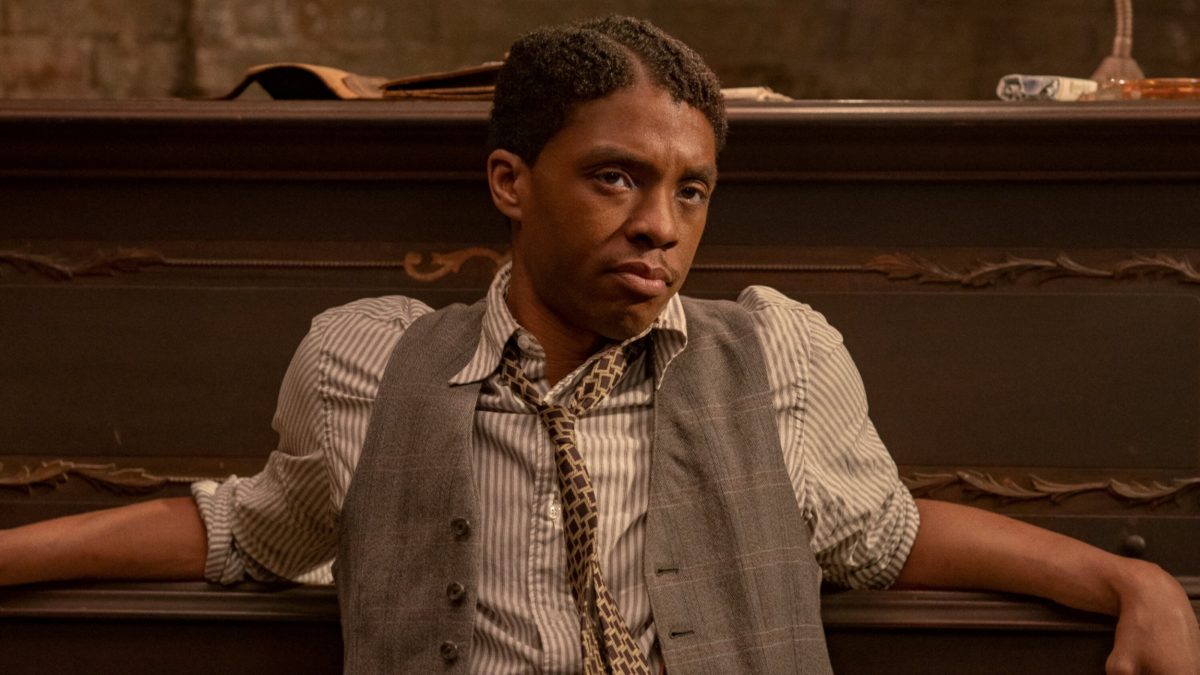
The loss of Chadwick Boseman is immeasurable. Months later, it still aches beyond belief, especially considering that his two career-best performances greeted audiences in 2020. Not long before he died, he gave the most haunting turn of the year in Da 5 Bloods, his climactic moment with Delroy Lindo remaining unforgettable. The way he inhabits a ghost, providing comfort and peace despite no longer being physically here to say the words, is almost impossible to think about following his passing. This would be enough to showcase how much Boseman had left to give as an actor, though his work in Ma Rainey’s Black Bottom only amplifies just how special he was as a man and as a performer. He carries the film on his shoulders, delivering August Wilson’s dialogue with scintillating charisma and emotional expressiveness. As it progresses his captivating charm morphs into desperate bursts of anger, with Boseman’s panic eventually leading to one of the best scenes of his career. He should still be here, and while nothing will ever make up for the loss that his family and the world have experienced, there is great solace in knowing that his final work was his greatest ever. – Logan K.
12. Viktoria Miroshnichenko (Beanpole)
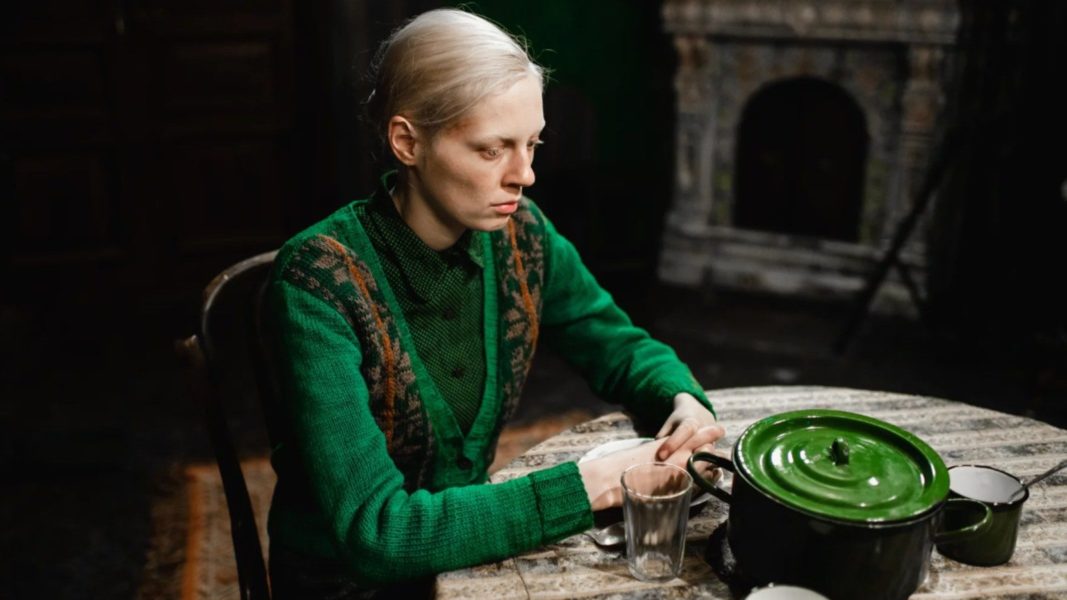
Viktoria Miroshnichenko devastates in her first big-screen performance. Her lanky, imposing frame collides with her soft, sweet mannerisms, as her quietness and stillness (both intentional and unintentional) portrays a world of hurt and change. Miroshnichenko’s subtle, crippling performance haunts you long after the film finishes, with flashes of her unflinching eyes glued in your memory. As a performance, it’s fantastic; as a debut, it’s astonishing, gasp-inducing work. – Michael F.
11. Ben Affleck (The Way Back)
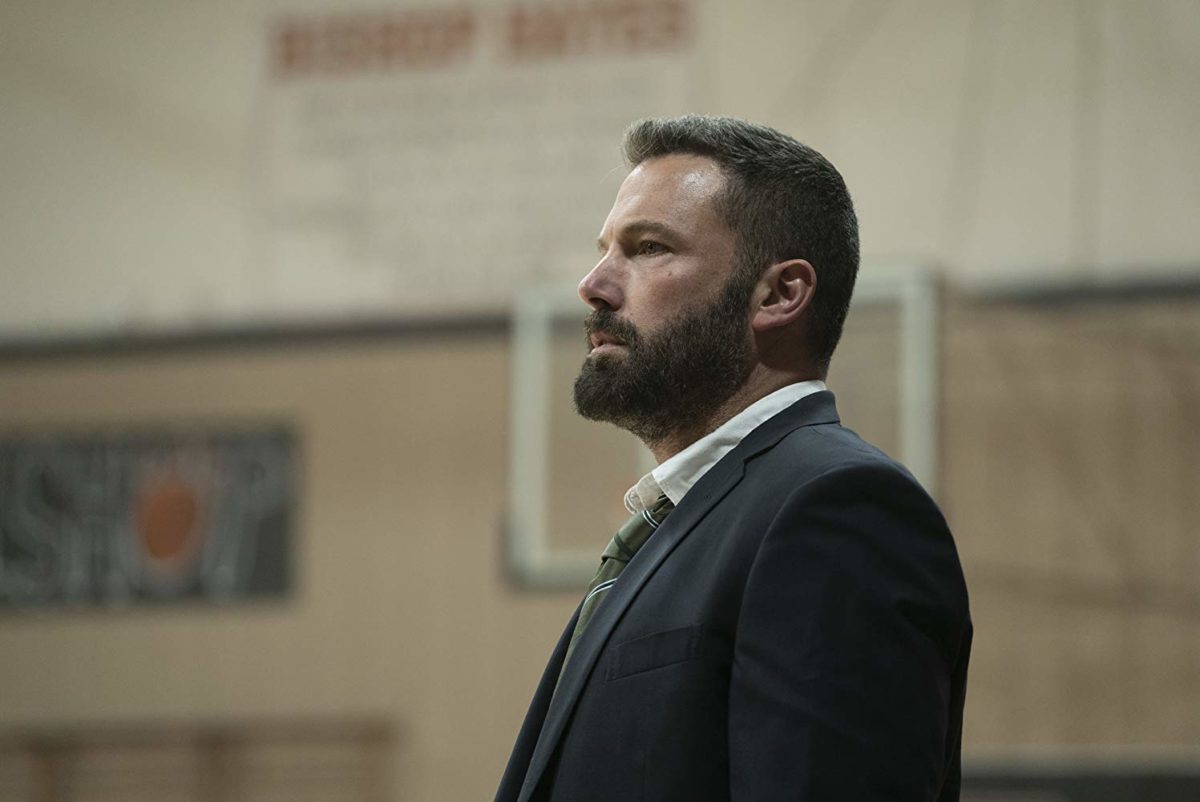
There is truth and glimpses of reality in every second of Ben Affleck’s performance in The Way Back, a willingness to open himself up and express parts of his difficulties with alcoholism. Affleck understands that there are no quick solutions to trauma—the scars still remain, those you’ve lost are still gone. No one can change that, but right now, what matters is taking that first step towards healing, whether that’s making a movie or picking up a basketball again. – Logan K.
10. Sidney Flanigan (Never Rarely Sometimes Always)
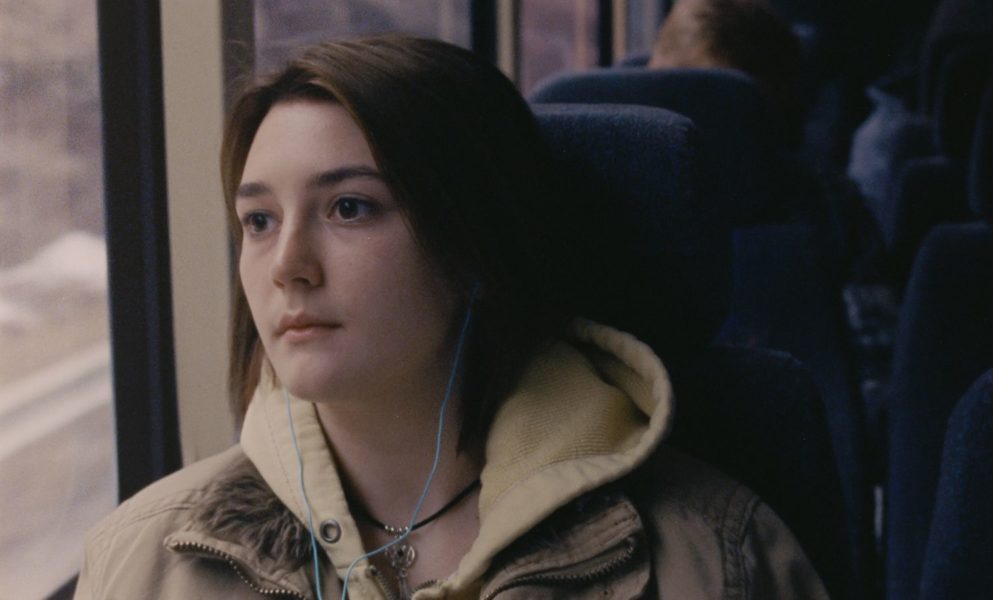
Sidney Flanigan’s sensational work in Never Rarely Sometimes Always is all about little gestures. The way she desperately reaches her hand out towards her cousin, how she attempts to hold in tears while being asked questions about her abortion, how she winces while walking around after hitting her stomach. There is as much emotion from watching her move with melancholic trepidation as there is in watching her cry. A truly special breakthrough performance. – Logan K.
9. Julia Garner (The Assistant)

The Assistant tracks a young assistant (Julia Garner) at a movie studio as she gradually realizes her boss is a Weinstein-style abuser, though Garner’s character rarely gets to express concern in words. Instead we see it in the way her eyes dart around the office, how she fidgets with the phone cord, and the off tone with which she recites company script. It’s a performance of minuscule details that slowly build a powerful bigger picture. – Orla S.
8. Steven Yeun (Minari)
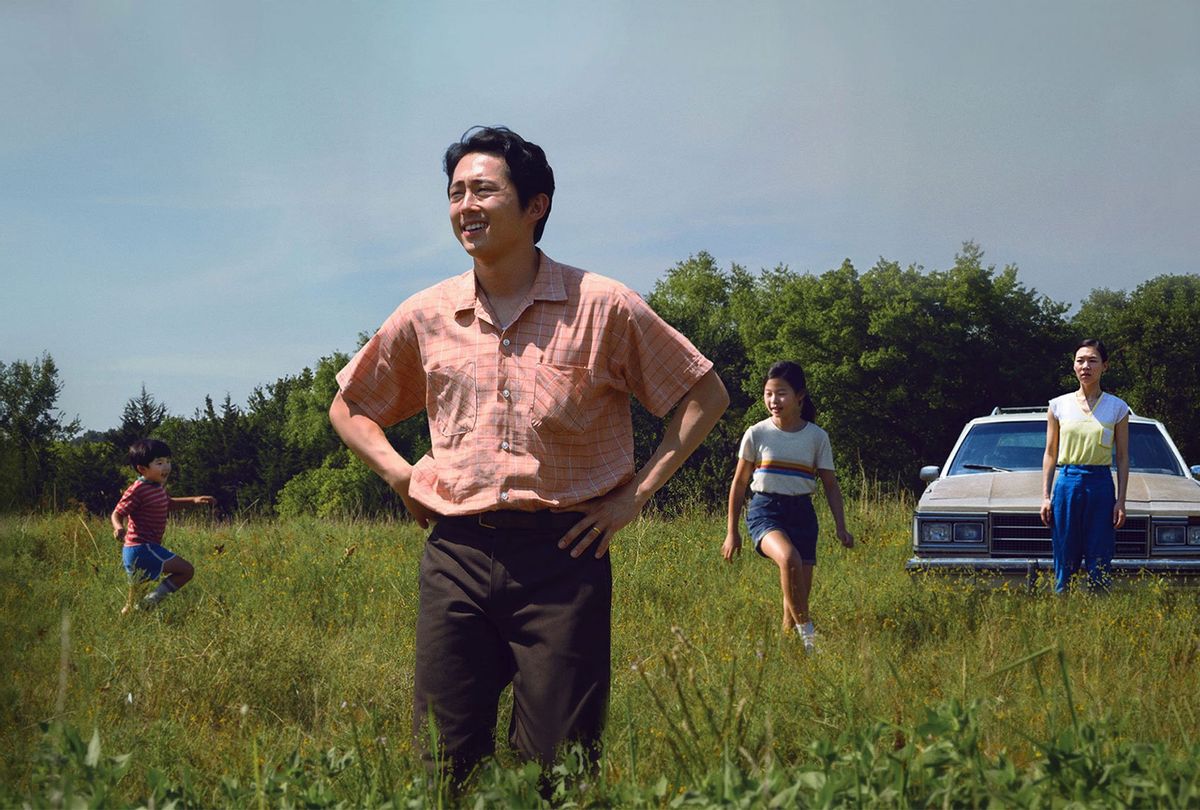
Wrestling with nature, faith, the American dream—the wounded ego of a dream that may not realize—your family’s expectations, and a marriage barely held together. Steven Yeun’s performance as Jacob is so beautiful because of the measured calm, confidence, and lovability he brings to the screen. Watching Jacob risk everything to create a fruitful life for his family is heartbreaking, all the more so when he’s forced to consider the possibility of failure. Part of what makes Minari so rich is that we can see Yeun become a leading man before our eyes. – Erik N.
7. Riz Ahmed (Sound of Metal)
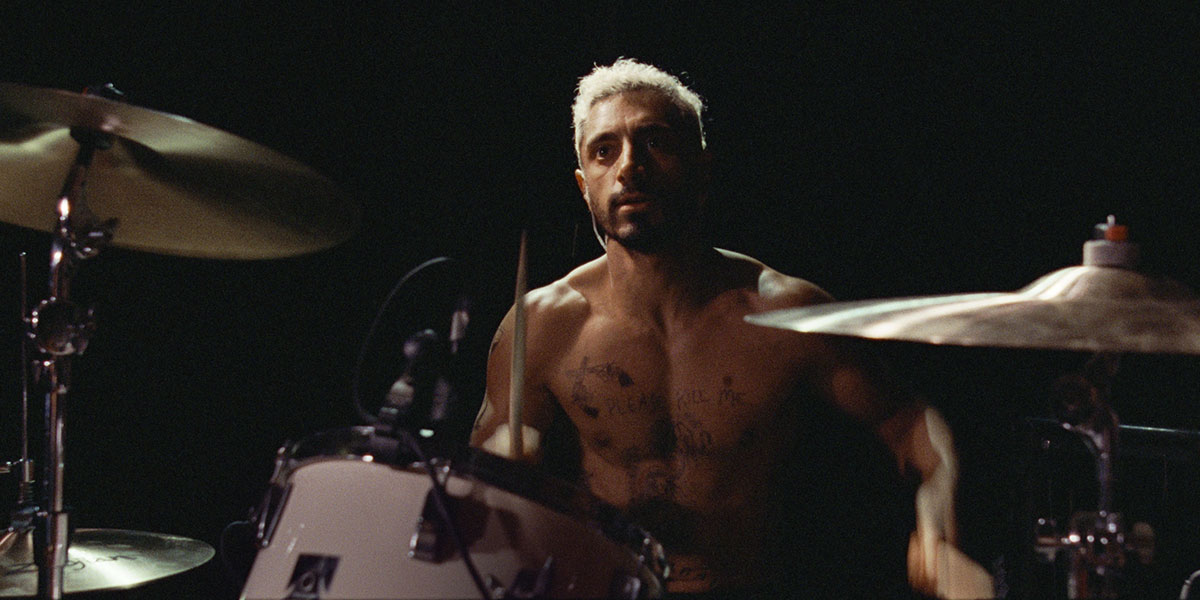
Much like Steven Yeun, Riz Ahmed has been consistent in supporting roles but, as a leading man in Sound of Metal, he shines and breaks you down. The hot-blooded anger, disappointment, and grief Ahmed carries as the ex-heroin-addict metal drummer trying to salvage his rock-n-roll lifestyle from dissipating because of his self-inflicted deafness is harrowing. The experiential trauma and triumph of Metal coalesce into a transcendent final scene where Ahmed decidedly embraces the silence. – Erik N.
6. Carrie Coon (The Nest)
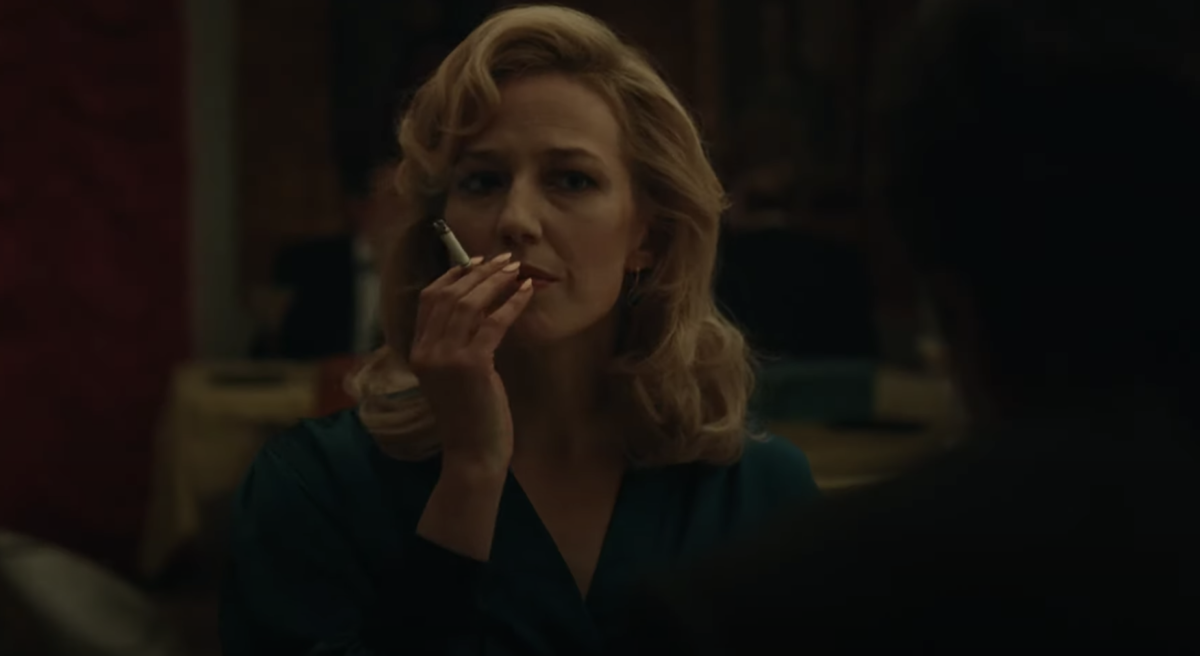
The characters in Sean Durkin’s The Nest have the rug pulled from under them when they discover their life might be nothing but a facade. That the film doesn’t feel like more of a nightmare in a year where the entire world had the floor crumble under it is mostly because of Coon. She’s the rare actor with ability to be transcendent and grounded. As Allison, the privileged wife of a British social climber (Jude Law) who relocates to a less-than-ideal life in her husband’s motherland, she commands the entire film with perfectly executed minimalism (despite the big blonde ’80s hair) that builds to a larger than life catharsis. Watching Coon in The Nest made me remember her sweetness as Honey in Who’s Afraid of Virginia Woolf on Broadway—not because there’s a trace of it in Allison (even her tender moments are restrained) but because, after the climax, I cannot wait to see her Martha. – Jose S.
5. Willem Dafoe (Tommaso)
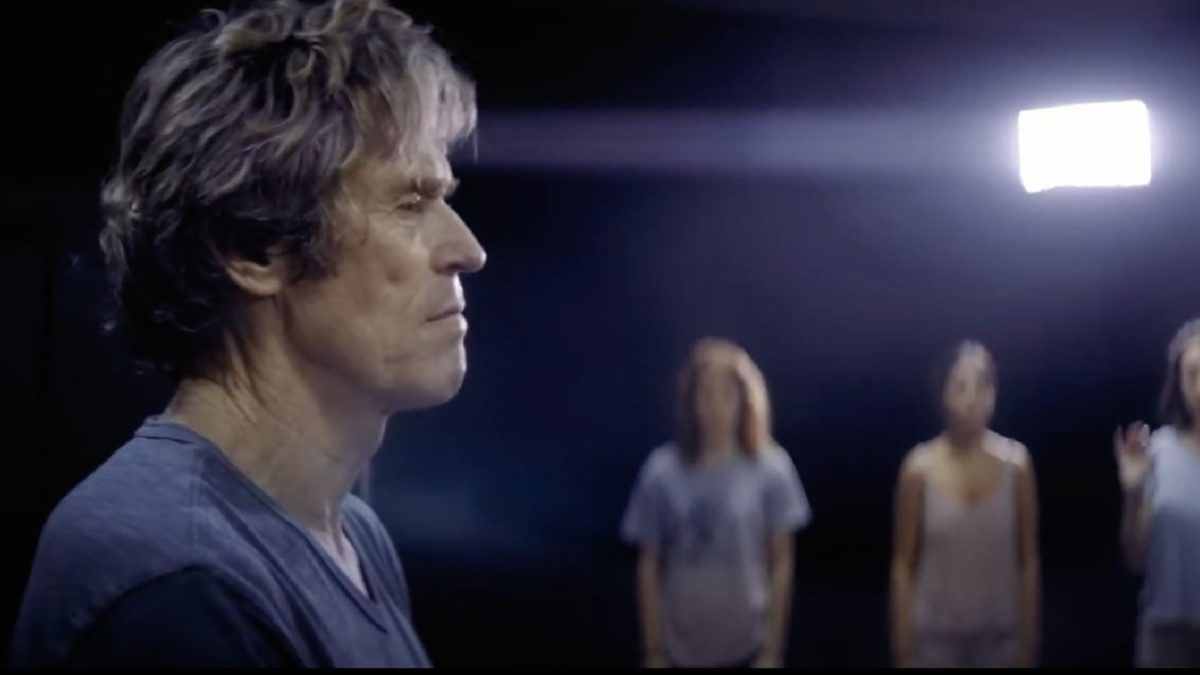
Willem Dafoe in Tommaso contains the weight of several lifetimes. As in his other 2020 Abel Ferrara collaboration Siberia, Dafoe is processing an entire existence of regrets and scars through self-hatred and vivid nightmares. Unlike Siberia, there is hope that the suffering will disappear. He conveys this sincere need to stay sober, to remain a good father, and continues to grasp as tightly as possible onto this hope even as demons begin rising again. – Logan K.
4. Delroy Lindo (Da 5 Bloods)
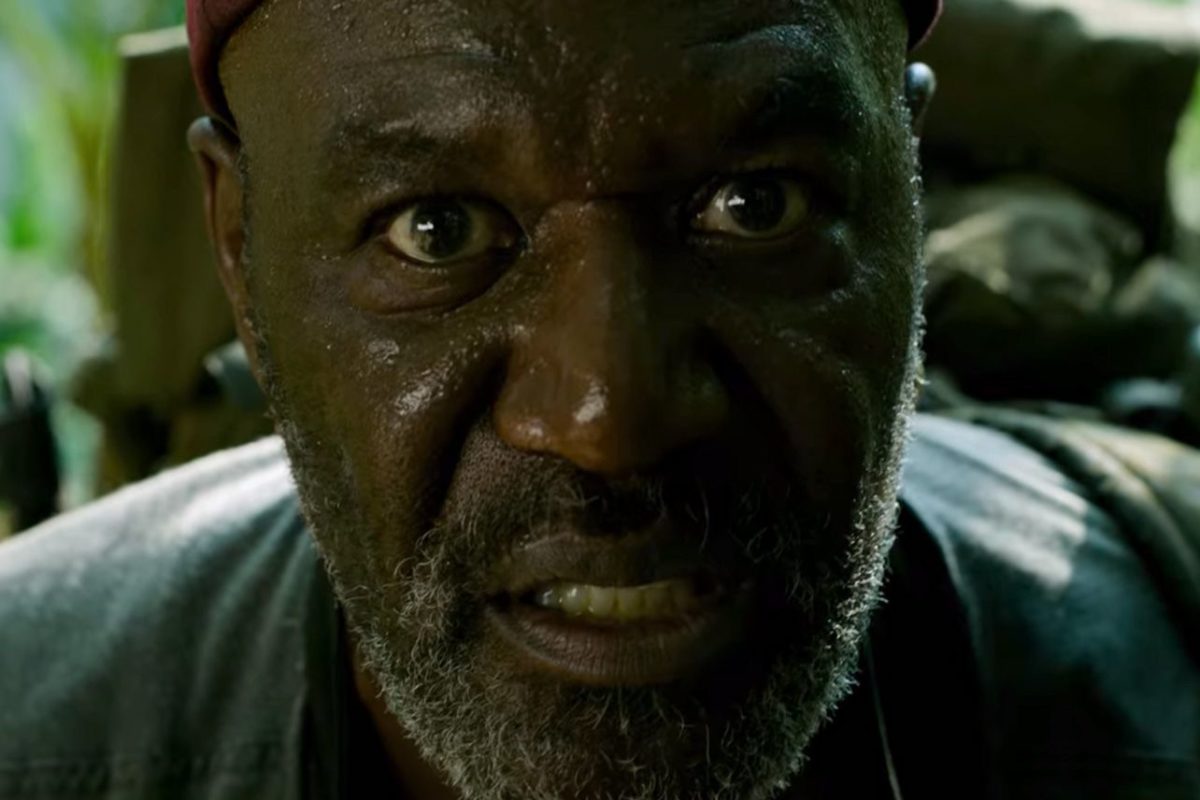
Delroy Lindo’s ferociousness in Da 5 Bloods is genuine and unforgettable, with every sequence of his embrace of darkness feeling genuinely dangerous. However, the true greatness of his performance comes from his character’s reconciliation of his own trauma. The guilt he feels over causing the death of his commander, the man that he loved like a brother, is earthshaking and resonates through his broken stares. You can feel his conscience disintegrating the closer he gets to confronting his past and grief, and the eventual moment of forgiveness and reconciliation is the best sequence of the year. Watching Lindo’s face’s tearful vulnerability and his body shuddering with emotion makes it feel like one of the most cathartic sequences of salvation in cinematic history. – Logan K.
3. Atsuko Maeda (To the Ends of the Earth)
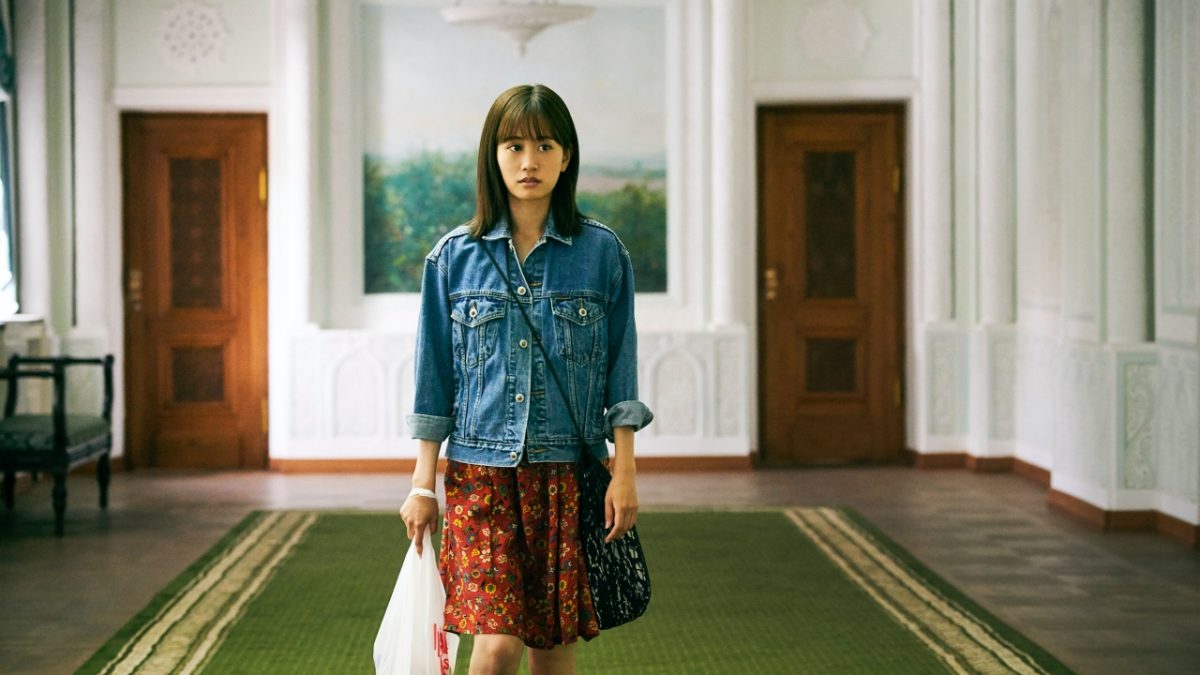
Caught in a new place away from everyone she loves, Atsuko Maeda’s character in To the Ends of the Earth isn’t doing well. Suffering from depression and anxiety, she struggles to navigate her environment and isolates herself, lingering in hotel rooms and wandering around abandoned buildings. Maeda’s miraculous portrayal of anxiety becomes something beautiful in the third act: she’s finally able to embrace the beauty of the wilderness around her after so much struggle. – Logan K.
2. Luca Marinelli (Martin Eden)

Luca Marinelli’s tall-bodied physique breathes fire onto the screen as the eponymous Martin Eden. The journey from illiterate, penniless working man to starving poet training himself in the world’s miseries plays like an epic as he transforms into a successful writer who is barely recognizable by film’s end. From the poetic interludes of Eden’s writing, the deep introspection measured in his eyes, and the raging speeches he gives against the socialist revolution unfolding in the background, Marinelli chews the scenery, announcing himself a significant talent. – Erik N.
1. Vitalina Varela (Vitalina Varela)
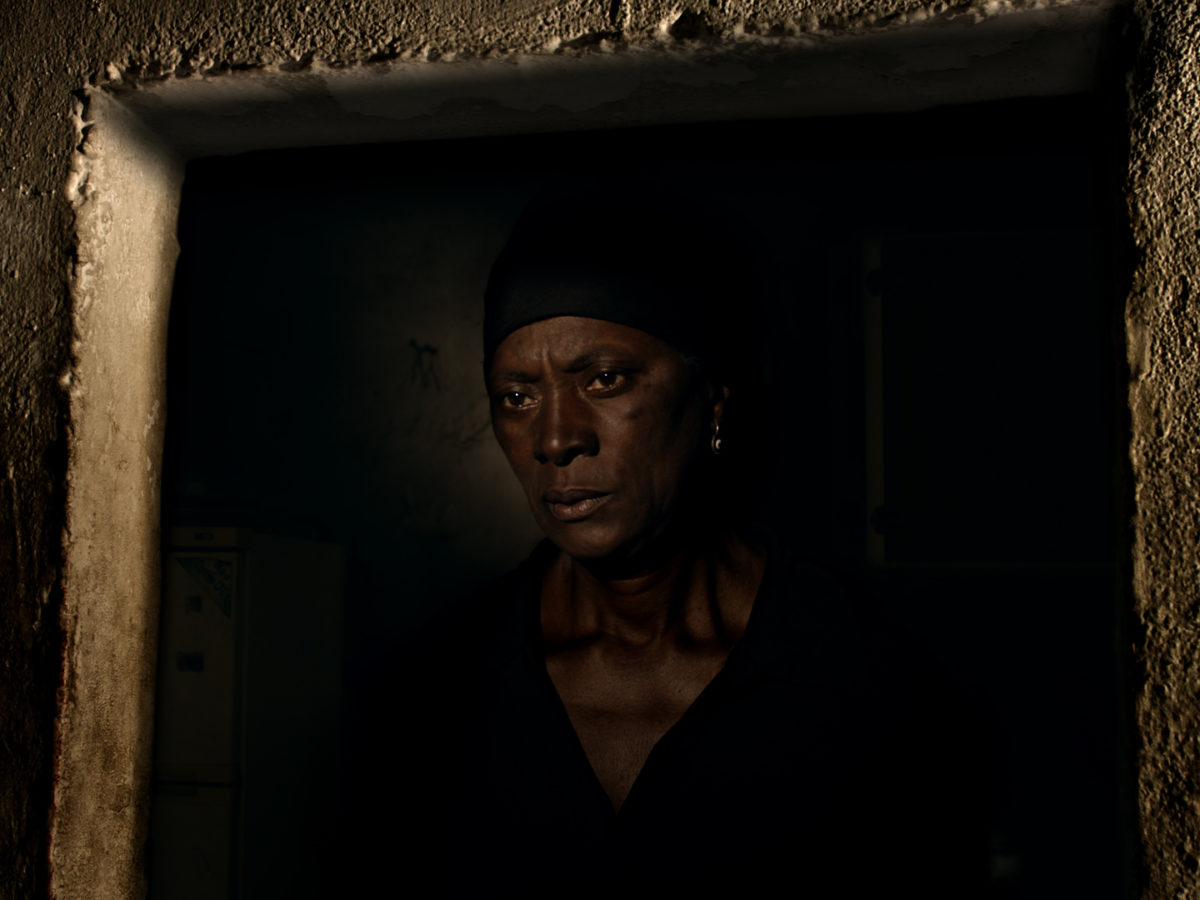
Vitalina Varela is filled with grief the second she arrives in Portugal. As Pedro Costa’s staggering nocturnal odyssey sends her through darkness and encounters with lost souls, she lingers amongst the spaces of her dead husband’s other life like a ghost, almost succumbing to the eternal heartbreak that loss can cause. But by the time she finally steps out into the sun and gets to stand over her husband’s grave, able to grieve and begin the process of moving on with her life, there is a feeling of survival and hope unlike anything else in cinema. It is impossible to forget the last shot of her face before she walks out of frame for the final time. – Logan K.
Special Mention: Small Axe Ensemble
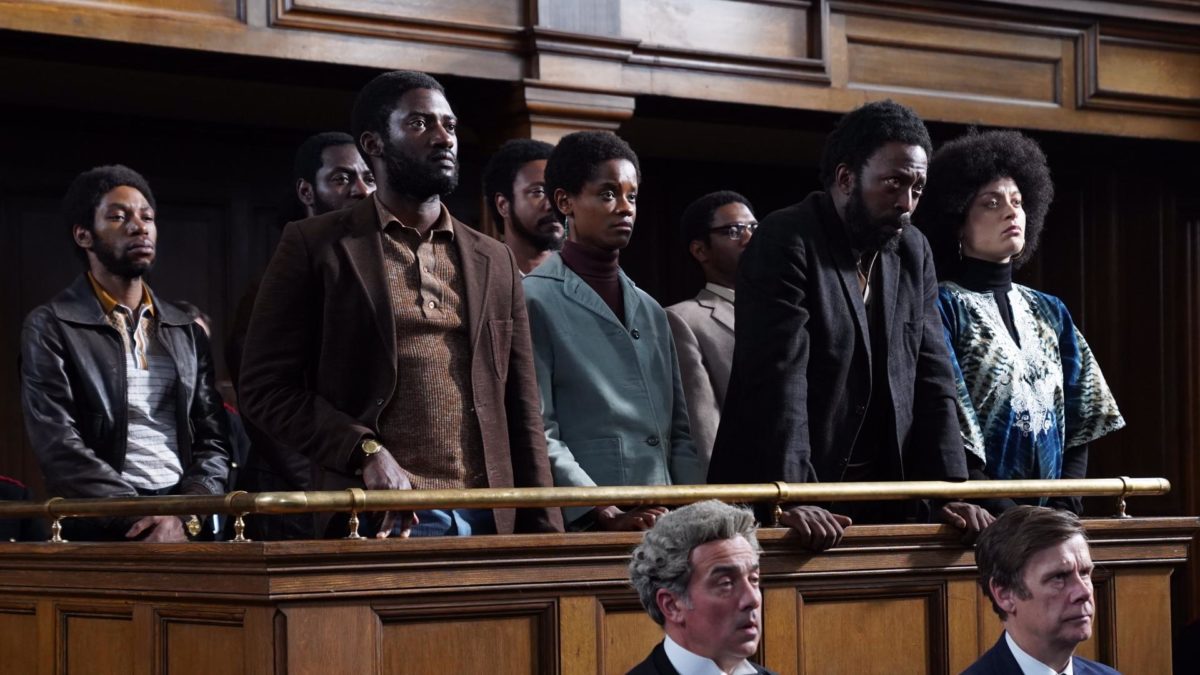
Since we couldn’t choose just one stand-out performance from one of the major achievements of 2020, Steve McQueen’s Small Axe series, the entire ensemble deserves a mention. Between the saddening tracking shot on Shaun Parkes’ sunken face at the end of Mangrove, the exemplary patriotism of a raging John Boyega hell-bent on fixing institutional violence in Red, White and Blue, and the hair-raising beauty of the party sing-along in Lovers Rock, Steve McQueen and his actors achieve a high alchemy across five films, covering the full spectrum of joy, love, and embrace whilst dealing with racial violence as each performer seeks solace and retribution in their community. – Eric N.
Honorable Mentions
Gemma Arterton (Summerland)
Haley Bennett (Swallow)
Sônia Braga (Bacurau)
Olivia Colman and Anthony Hopkins (The Father)
Maren Eggert (I Was at Home, But…)
Pierfrancesco Favino (The Traitor)
Sandra Hüller (Sibyl)
Vanessa Kirby (Pieces of a Woman)
Orion Lee (First Cow)
Sophia Loren (The Life Ahead)
Talia Ryder (Never Rarely Sometimes Always)
Bill Murray (On the Rocks)
Leslie Odom Jr. (One Night in Miami)
Odessa Young (Shirley)
